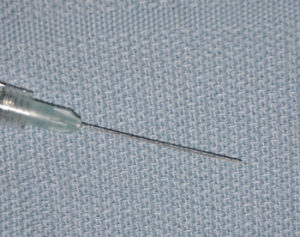
The newest safety data on injectable fillers for facial cosmetic treatments has just been reported and is available at the website entitled injectable safety.org. Based on a released document from an FDA executive summary dated November 18, 2008, clinical data obtained for the years 2003 through 2008 shows that the risk of adverse events such as swelling or allergy from injectable fillers with FDA-approved materials is around 1 in 10,000 and the risk of injury is around 1 in 11,000.This information is consistent with what audited procedural statistics from the American Society for Aesthetic Plastic Surgery has shown as well as the potential adverse outcomes reported on FDA-required product labeling.
In this FDA summary, they cite 930 specific adverse events reported between January 1, 2003 and September 20, 2008. The most common complication seen was swelling (cited in 40.6% of reports), inflammation (cited in 35.5% of reports), and erythema (cited in 33.4% of reports). Ninety-four (94) adverse events of the estimated 9 million procedures performed required surgical intervention, 638 adverse events were treated with medication, the remaining of the 930 reported adverse events did not specify how the event was treated. Nearly 15% (135) of the adverse events reported occurred outside the U.S. In addition, the FDA report notes that in some of these complications the injections were done by untrained injectors in locations other than health clinics or doctors offices.
This information is what most plastic surgeons already know and experience…that injectable fillers and their outcomes are safe, predictable, and very satisfying for the vast majority of patients. Serious complications are very rare when using approved brand-name injectable fillers. Complications are more likely to occur, not surprisingly, when unapproved injectable fillers are used or when injectable fillers are given by untrained individuals who lack complete training in facial anatomy and aesthetic surgery.
The conclusion is…..use brand-name products and have them done in medical settings by board-certified surgeons who are specifically trained in the face and aesthetic surgery. While minor complications can still occur, they are far less likely when done under these guidelines.
Dr. Barry Eppley
Indianapolis, Indiana


